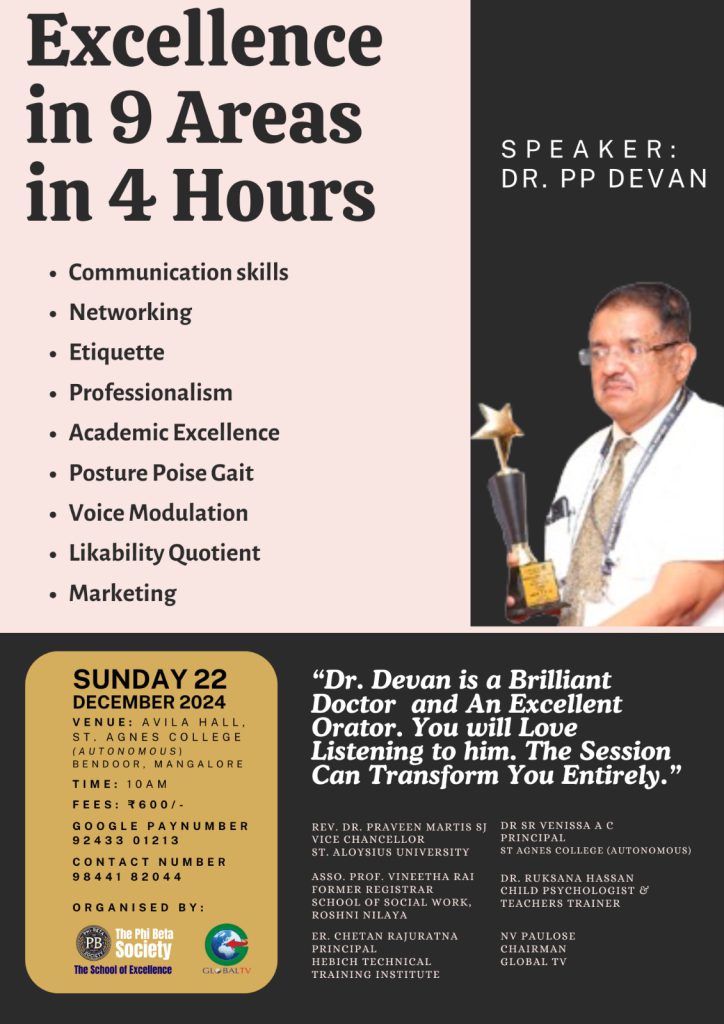The Hidden Risks of “Free”: Lessons from Coca Cola’s Statement | Global TV
NV Paulose, Chairman, Global TV +91 98441 82044

Coca Cola once made a surprising statement that its biggest competitor in India was not another beverage company, but water. Their campaign went in alerting people not to drink water from unhealthy sources; they have introduced pricing even for water. Source verification is very important even when things are offered free is the lesson learned here. This is to point fingers to an often-overlooked truth about human behaviour. Our tendency to gravitate toward what appears to be free is NOT so very good. Many things offered free comes with hidden risks.
Things offered for free often come with strings attached. It leads us in unintended and potentially harmful directions. Water, often viewed as free or inexpensive, illustrates this concept well. While it may seem readily available, the source and quality of water are crucial factors that determine its true value. Free or untested water sometimes can carry risks to health and well-being. Doesn’t mean that you should not drink water when it is offered to you on a house visit. That’s not what is meant to communicate here with this communicative article.
What is underscored here is the importance of evaluating what lies beneath the surface. Many things offered for free in life are not as harmless as they seem at the outset. They may carry hidden costs most of the times. Some of them may be set being traps designed to extract greater value from us in other ways.
The Hidden Risks of Free Offerings
The allure of free things often masks risks that can lead to significant consequences. Here are key areas where the dangers of “free” manifest:
Questionable Quality
Free products or services often lack proven reliability or quality. For instance, free drinking water from unknown sources may be contaminated, leading to severe health consequences. Similarly, free goods and services may not be thoroughly tested or safe for use, putting users at risk.
Hidden Agendas
Many free offerings are not genuinely free but come with hidden motives. Companies offering free samples or services often do so to collect personal data, gain influence, or create dependencies that will lead to future profits. What appears to be free may come at the cost of privacy, autonomy, or long-term financial stability.
Exploitation and Manipulation
By giving away something for free, entities can subtly manipulate individuals into bigger commitments. For example, free trials often lead to subscription charges, and free advice or products may serve as a gateway to influencing decisions that benefit the provider disproportionately.
Opportunity Costs
Choosing free options can lead to missed opportunities. For instance, relying on free, untested solutions may prevent one from investing in proven, high-quality alternatives. In the long run, the cost of lost opportunities often outweighs the initial savings.
The Importance of Proven Value
Rather than chasing what is free, we should prioritize what has a proven track record of quality, reliability, and worth. Here are some practical steps to achieve this:
- Evaluate the Source: Always question the origin and quality of free offerings. Whether its water, food, or digital services, ensure they come from credible sources with a history of reliability.
- Understand the Motive: Look beyond the surface and ask why something is being offered for free. Recognize the hidden agendas that may be at play.
- Test and Verify: Avoid adopting free products or services without proper evaluation. Seek feedback, reviews, or certifications that prove their worth.
- Invest in Quality: When faced with a choice, prioritize proven quality over the illusion of free. An initial investment in something reliable often saves greater costs in the future.
- Stay Mindful: Be conscious of the long-term implications of free offerings and the potential risks associated with them.
Building Awareness: A Call to Action
The lesson is clear: free is not always safe or beneficial. By adopting a critical mind-set, we can overcome the temptations of free offerings and make choices that align with our values and priorities. This principle extends beyond products and services to encompass relationships, decisions, and life choices.
Rather than running behind the glitter of “free,” let us focus on what truly holds value. Let us choose from the proven, reliable, and beneficial choices in the long run. This approach not only protects us from hidden risks but also helps build a more conscious, equitable, and sustainable future.
Remember, the allure of “free” often hides its true cost. By staying informed and intentional, we can avoid falling into traps and ensure that our decisions lead us in the right direction.





